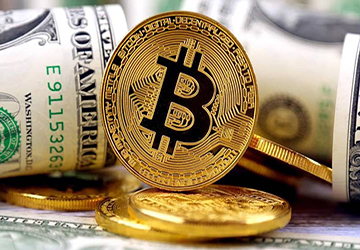The Impact of Inflation on Your Investments: How to Protect Your Wealth
Inflation is a critical factor that can significantly affect the value of your investment. With increasing inflation, people are facing a crisis due to investment losses. So, over time, your wealth-building plans can be hampered by higher prices for products and services that reduce the purchasing power of your money. It is necessary to diversify your portfolio, consider inflation-linked securities, invest in tangible assets, and regularly analyze and change your investments to protect your money from the destructive effects of inflation. In this article, we examine the impact of asset inflation and offer preventative steps you can take to protect your wealth from inflation.
What do you mean by inflation?
Inflation is the steady increase in the average price of goods and services over time. As inflation rises, the currency unit depreciates. If profits earned do not exceed the inflation rate, the real value of an investor's investment may decline.

Adverse effects of inflation on investment:
People need help with the loss of these investments due to rising inflation. The negative impact of inflation on investment is as follows:
1. Real yields fall
One of the most adverse effects of inflation on your investments is a gradual decline in your actual returns. Absolute returns are inflation-adjusted returns that inflation crises may reduce. When inflation rises in a country, it creates general instability in the economy and the stock market, leading to losses for many companies. On the other hand, if you decide to invest notional, the return will be a stated return on investment. Earning actual returns depends on your state's inflationary growth. For example, you invest $7,000 and get a nominal return of $10,000; if inflation rises by a certain percentage, your real rate of return falls accordingly, causing your investment to freeze.
2. Bond Yield
Investments that provide fixed income, such as bonds, are at risk when inflation rises.
The interest-earning value of these investments falls as inflation rises, which may result in lower initial costs or additional taxes.
Therefore, in times of inflation, your actual yield may be significantly lower, resulting in a loss on average, which may cause your bonds to be resold at a lower or equivalent price. To prepare for this situation, consider how inflation might affect your returns and other options, such as securities that offer inflation protection if you own fixed-income assets.
3. Stock market volatility
Stock exchange prices are constantly fluctuating according to the value of the currency. The state of our economy has a significant impact on stock market prices. This is a challenging time for investors with a higher stock market volatility risk due to ongoing inflation. Larger businesses have safeguards and strategies to deal with inflation but suffer under difficult circumstances. If you invest your money in a company through a bank loan, you must expect higher interest rates due to increased inflation. In addition, their raw material budgets may also change due to tariff hikes, affecting their profitability.

How do you protect your wealth when inflation strikes?
Here are a few strategies investors should consider when investing to protect their wealth in the event of inflation:
1. Divide your portfolio
One of the most common and effective ways to deal with inflation problems is to divide your investment budget into different investment areas, which include the stock market, banks, industrials, bonds, real estate, agriculture, housing projects, and many more, which can help You fix inflation. You protect your wealth. This way, profits or real yields in various sectors are less likely to fall due to inflation crises. By dividing your investments into different asset classes, even during periods of inflation, the loss of actual returns is reduced, and your money is protected from significant adverse impacts.
2. Consideration of property, plant and equipment
The best way to prevent financial crises and inflation problems is to consider tangible assets or properties as investments, as they will not be affected during inflation. Tangible assets are real estate, open land, gold, silver, natural resources, and other significant rocks or metals. These companies can help you grow your profits instead of suffering losses during inflation. Because when inflation and the market price of sticks rise, so does its cost, which is suitable for the buyer or investor.
3. Increase revenue through additional business
An entrepreneur or an investor should always be aware of good and bad days; sometimes, he loses big, but sometimes he has a good chance of winning. But to get through the tough times of inflation, there should be alternatives to offset this, such as side or add-on deals that help you stay compatible even if you lose. It increases your income, mitigates the harsh effects of inflation, and protects your wealth as much as possible.
4. Monitor and change your portfolio regularly
Suppose you are a successful businessman or investor and wish to protect your money from the severe effects of inflation. In that case, you should monitor your portfolio occasionally and analyze its performance. If you find harmful factors that need to be improved, change your portfolio and improve your investment strategy to preserve and protect your assets.
Diploma
In short, the value of your investments may decline due to inflation, affecting your long-term wealth. By understanding the effects of inflation and taking protective measures, you can protect against periods of inflation and preserve the financial value of your investments. Remember, actively managing your wealth can help you maintain financial stability and achieve your long-term financial goals.
Related Article

The Power of Compound Interest: Unlocking the Benefits for Long-Term Wealth

Best Investment Platforms for Beginners in 2023

Investing in Cryptocurrencies: Risks, Rewards, and Best Practices

How to Recover from a Financial Setback

6 Essential Financial Documents Every Business Needs
